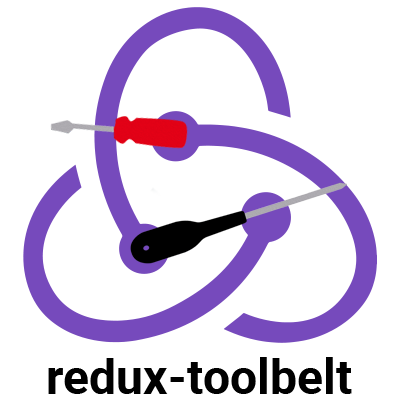
Security News
Google’s OSV Fix Just Added 500+ New Advisories — All Thanks to One Small Policy Change
A data handling bug in OSV.dev caused disputed CVEs to disappear from vulnerability feeds until a recent fix restored over 500 advisories.
redux-toolbelt-observable
Advanced tools
A set of helper functions that extends 'redux-toolbelt' for usage with redux-observable.

Read about redux-toolbelt here
The tools are available in the redux-toolbelt-observable npm package.
npm install --save redux-toolbelt redux-toolbelt-observable rxjs redux-observable
# or
yarn add redux-toolbelt redux-toolbelt-observable rxjs redux-observable
You may import the functions you'd like to use using one of the two methods:
import { makeAsyncActionCreator } from 'redux-toolbelt';
import { makeAsyncEpic } from 'redux-toolbelt-observable';
// or
import makeAsyncActionCreator from 'redux-toolbelt/lib/makeAsyncActionCreator';
import makeAsyncEpic from 'redux-toolbelt-observable/lib/makeAsyncEpic';
makeAsyncEpicmakeAsyncEpic(asyncActionCreator, asyncFn, options?)
Creates an epic that handles actions created makeAsyncActionCreator.
The epic listens to the request action and dispatches success and failure actions.
const fetchTodos = makeAsyncActionCreator('FETCH_TODOS');
const fetchTodosFromServer = () => {
return axio.get('api/v1/todos');
};
const epic = makeAsyncEpic(fetchTodos, fetchTodosFromServer);
asyncActionCreatorAn async action creator created by makeAsyncActionCreator.
asyncFnThe async request to be executed. The function accepts the action's payload, type, meta and the store's state$ as parametes.
It can return either an Object, a Promise or an Observable.
const fetchTodosAsyncFn = payload => {
return axio.get(`api/v1/todos/${payload.id}`);
};
const createOrUpdateTodoAsyncFn = (payload, type, meta, state$) => {
const isNew = !state$.value.todos.find(t => t.id === payload.id);
return isEdit
? axio.put(`api/v1/todos/${payload.id}`, { data: payload })
: axio.post(`api/v1/todos`, { data: payload });
};
const callMultipleApisAsyncFn = async () => {
const first = await axios.get('api/v1/first');
const second = await axios.get('api/v1/second');
return { first, second };
};
Note: The reason for the
asyncFnsignature to break down the action into its parspayload,type,metaas opposed to accepting a singleactionparameter is to simplify a very common scenario where the following mapping is used:const epic = makeAsyncEpic(actions.updateTodo, api.updateTodo); actions.updateTodo({ id: 5, text: 'todo 5' });Had the signature of the
asyncFnwould have been(action, state$)you would have had to change the epic to:// WRONG - do not do this const epic = makeAsyncEpic(actions.updateTodo, action => api.updateTodo(action.paylod) );and repeat it again and again.
optionsignoreOlderParallelResolves (deprecating: cancelPreviousFunctionCalls)
If several promises are made before any of them resolves, you can choose to ignore older resolves and only receive the last one by passing true to this option
const fetchTodos = makeAsyncActionCreator('FETCH_TODOS');
const fetchTodosFromServer = payload => {
/*...*/
};
const epic = makeAsyncEpic(fetchTodos, fetchTodosFromServer, {
ignoreOlderParallelResolves: true
});
Payload and MetaYou can pass parameters within the ActionCreator like this:
const fetchTodos = makeAsyncActionCreator('FETCH_TODOS');
const fetchTodosFromServer = payload => {
/*...*/
};
const epic = makeAsyncEpic(fetchTodos, fetchTodosFromServer);
fetchTodos(payload, meta);
After the request has returned successfully, the meta object contains the original meta and an object name _toolbeltAsyncFnArgs with the payload that was sent. For example:
// actions.js
const fetchAddFive = makeAsyncActionCreator('FETCH_ADD_FIVE')
// api.js
const fetchAddFiveFromServer = ({number}) => Promise.resolve(number + 5)
// epics.js
const epic = makeAsyncEpic(fetchAddFive, fetchAddFiveFromServer)
// execute action
fetchAddFive({number: 1}, {a: true})
// on request
{TYPE: 'FETCH_ADD_FIVE@ASYNC_REQUEST', payload: {number: 1}, meta: {a: true}}
// on success
{TYPE: 'FETCH_ADD_FIVE@ASYNC_SUCCESS', payload: 6, meta: {a: true, _toolbeltAsyncFnArgs: {number: 1}}}
This ability makes sure you use the most updated response.
makeSuffixesEpicmakeSuffixesEpic(mapper, suffixes, metaPredicate?)
export const errorInAsyncRequests = makePrefixesEpic(
({ payload }, _) => {
if (payload.status === 401 || payload.status === 403) {
return actions.reset();
}
return showSnack(
payload?.error.message || payload.message || 'Unknown error'
);
},
ACTION_ASYNC_FAILURE_SUFFIX,
meta => meta.shouldIgnoreGlobalError
);
makeGlobalErrorEpicmakeGlobalErrorEpic(mapper)
Creates an epic that handles failure actions created by calls to makeAsyncActionCreator.
The helper epic listens to the all failure actions dispatched in the application and allows you to handler them centrally, in one place.
A common usage of this epic is to show error messages/notifications/toast in a common way and controlled in a single place in the code.
export const errorInAsyncRequests = makeGlobalErrorEpic(
({ payload }) => ({ payload }, _) => {
if (payload.status === 401 || payload.status === 403) {
return actions.reset();
}
return showSnack(
payload?.error.message || payload.message || 'Unknown error'
);
}
);
FAQs
Epic helpers for redux-toolbelt
The npm package redux-toolbelt-observable receives a total of 1,135 weekly downloads. As such, redux-toolbelt-observable popularity was classified as popular.
We found that redux-toolbelt-observable demonstrated a not healthy version release cadence and project activity because the last version was released a year ago. It has 3 open source maintainers collaborating on the project.
Did you know?

Socket for GitHub automatically highlights issues in each pull request and monitors the health of all your open source dependencies. Discover the contents of your packages and block harmful activity before you install or update your dependencies.

Security News
A data handling bug in OSV.dev caused disputed CVEs to disappear from vulnerability feeds until a recent fix restored over 500 advisories.

Research
/Security News
175 malicious npm packages (26k+ downloads) used unpkg CDN to host redirect scripts for a credential-phishing campaign targeting 135+ organizations worldwide.

Security News
Python 3.14 adds template strings, deferred annotations, and subinterpreters, plus free-threaded mode, an experimental JIT, and Sigstore verification.